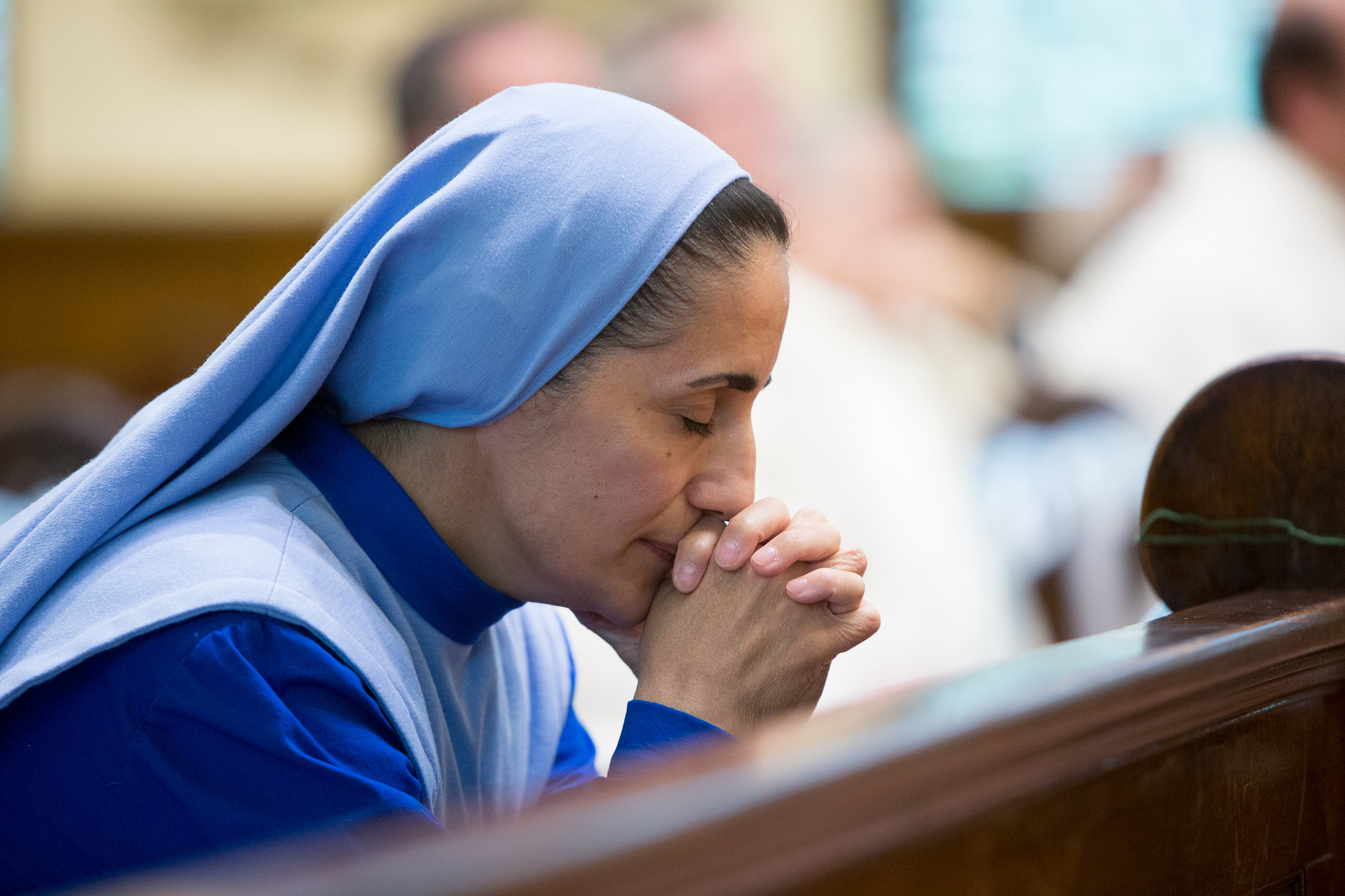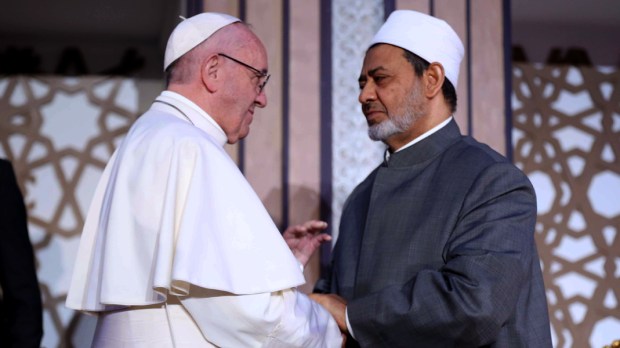Lenten Campaign 2025
This content is free of charge, as are all our articles.
Support us with a donation that is tax-deductible and enable us to continue to reach millions of readers.
How afraid should we be of Islam in the wake of recent terror attacks? Are official Catholic (and Western secularist) reassurances about Islam just naivete?
These questions — once studiously ignored in the press — have become more and more common:
- London Gave Shelter to Radical Islam and now It’s Paying the Price, says one report.
- Says another: A Muslim finally said what bishops won’t: that terrorism is a “specific doctrine” of Islam,.
- A popular Catholic website is more blunt: Islam Is Not a Religion, it says, flatly.
But the truth is, Catholics have two non-negotiable facts that make all-out opposition to Islam impossible.
The first is the teaching of the Catholic Church. The Catechism of the Catholic Church (No 841) says:
“The plan of salvation also includes those who acknowledge the Creator, in the first place among whom are the Muslims; these profess to hold the faith of Abraham, and together with us they adore the one, merciful God, mankind’s judge on the last day.”
That statement comes from Lumen Gentium, so this is Council-level teaching. Whatever a Catholic can say about Islam, pronouncing it “evil” is not an option.
The second non-negotiable fact is that questions about Islam will not be theoretical for long. Muslims are now and will increasingly be a significant part of our daily lives in the West.
More than 13 million Muslims were living in the European Union in 2010. In America, there are 3.3 million Muslims today and there will be about 8.1 million by 2050.
There are several ways to go about understanding Islam. One way is to look at the Koran. But that is fraught with confusion for nonexperts.
The U.K Spectator had one ironic piece of news: Twitter was criticized for not acting fast enough to take down a “hate tweet” applauding London’s terror attacks. Said the tweet: “Face the people of kufr [non-believers] wherever you are and show Allah what He loves from you. Kill them wherever you find them.”
What wasn’t mentioned in much of the coverage is that this is a direct quote from the Koran.
Islamic scholars say the passage is about conduct in a defensive war and is being taken out of context.
Catholics can understand that. Atheist activists love quoting similar “hate” passage from the Bible, such as “Happy is the one who seizes your infants and dashes them against the rocks!” — passages no one takes literally.
So what do we do? Pope Francis (like Pope Benedict) says we should talk to actual Muslims.
This doesn’t mean embracing Islam unreservedly. My book What Pope Francis Really Said, tries to use actual quotes to correct the narrative that Francis is blithely supportive of Islam.
On his November 2014 plane ride from Istanbul to Rome, reporters asked the Holy Father about the rise of “Islamophobia.” He began by spelling out the Church’s respect for Islam. But he also made it clear that he was not satisfied with the current state of Islam.
He called on Muslim leaders “to issue a clear condemnation against these kinds of groups. … This way they hear it from their leaders’ mouth. There needs to be international condemnation from Muslims across the world. It must be said, ‘No, this is not what the Koran is about!’”
He also said that “Christianophobia” is a much more dangerous phenomenon than “Islamophobia.”
“On Christianophobia: It’s true, I’m not going to soften my words, no. We Christians are being chased out of the Middle East,” he said.
He described manifestations of “Christianophobia”: special taxes for Christians or laws splitting up husbands and wives.
“It’s as if they wished that there were no more Christians, that nothing remain of Christianity,” he said. “In that region this is happening. It’s true, it’s first of all a result of terrorism, but when it’s done diplomatically with white gloves, it’s because there’s something behind it. This is not good.”
Pope Francis refuses to say that all Islamic people are dangerous — but he also refuses to say that Christian fear of Islam in any way rivals the horrors of Islamic fear of Christianity.
That’s the right thing to do. There is a long tradition in America of openness to Islam, and those who spend time with Muslims often change their opinion.

Just ask Mother Olga Yaqob, the Iraq-born nun who wowed the National Catholic Prayer Breakfast last week.
“I worked bringing Muslims and Christians together,” she told Aleteia. “That’s why I studied Islam, I studied the Koran from cover to cover, in order to work with them and build bridges between Christians and Muslims, so we can rebuild our country and heal the wounds of our people from those wars.”
We can certainly do here what she did there.

